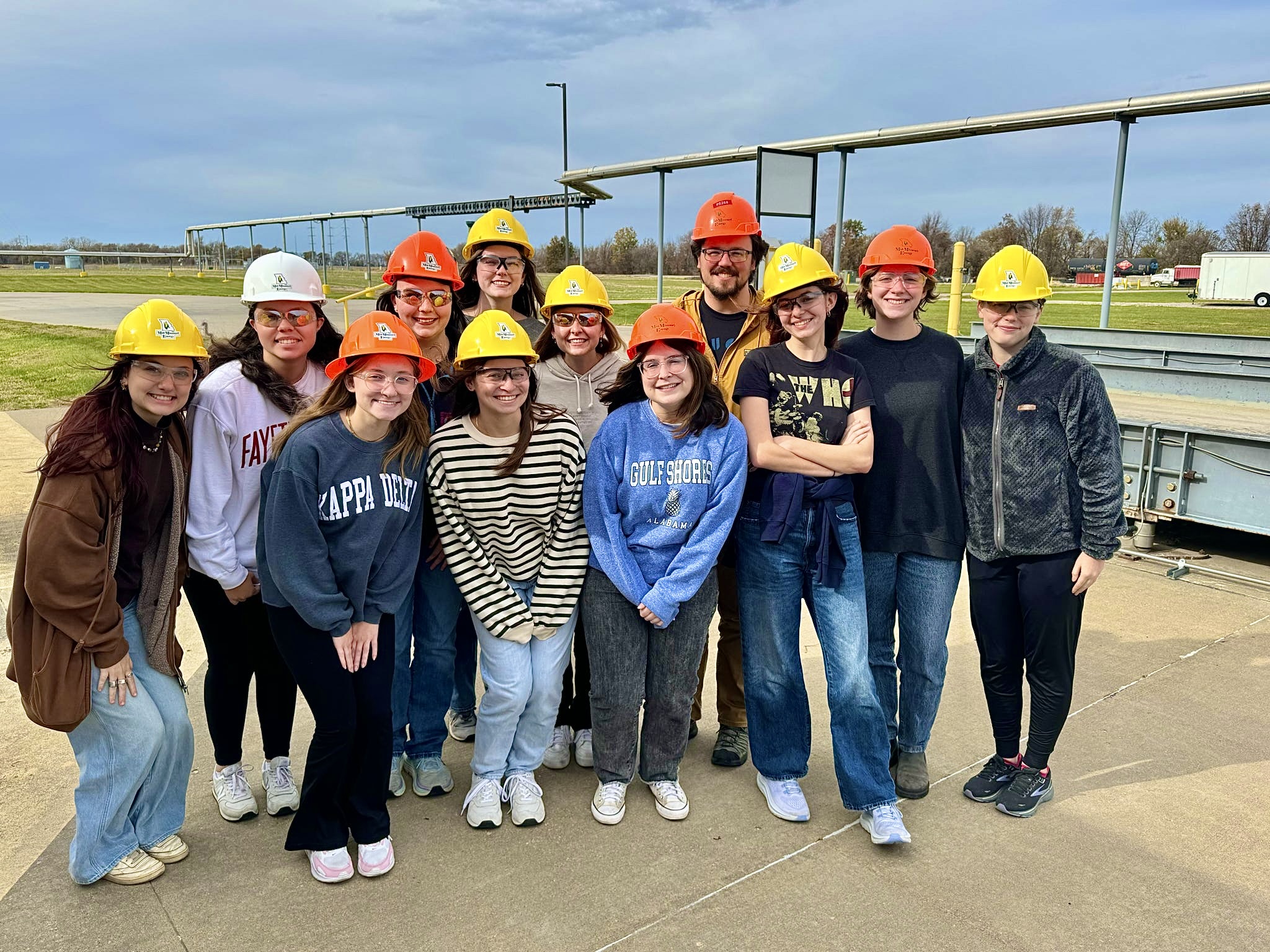Biological & Agricultural Engineering
As a biological engineer, you will learn the knowledge and tools to design sustainable
water, food, energy, and agricultural systems. With our state-of-the-art facilities
and cutting-edge technology, our undergraduate and graduate students are at the forefront,
solving real-world problems in classroom, field, and laboratory settings, significantly
impacting our society.
Degrees Offered
Student to Faculty Ratio
Female Students
Students Enrolled (2024)
Recent Student/Faculty Publications
Graduate Employment Placement Rate
Average Salary
Career Outlook
Our personalized approach not only enhances your skills and knowledge but also ensures
that your education is relevant and fulfilling, positioning you for success in your
engineering career.
What You Can Do
- Environmental Engineer
- Consultant
- Design engineer
- Project management
- Project manager
- Bioprocess engineer
- Systems engineer
- Research and development engineer
Industries You Can Work In
- Water and natural resources
- Food and bioprocessing
- Renewable Energy Systems
- Environmental Sustainability
- Agricultural Productivity
Research Areas
Agricultural and Food Engineering
Faculty in this area are developing efficient and sustainable food production methods for a growing population. Their research covers various agricultural industries, including reducing transportation costs through on-farm grain drying, utilizing agricultural residues for biofuels, renewable fuel use in poultry house heating, mitigating aerial emissions, improving indoor air quality, assessing microbial risks in poultry and food processing, modeling pathogenic bacteria, producing value-added bio-products, algae production for biofuels, managing manure, and applying geospatial technologies in food systems.
Our faculty involved in this research:
Biotechnology and Bioprocessing
Faculty in this area design systems utilizing engineering tools with life sciences. Examples of biotechnology engineering include biosensors and bioinstrumentation for foodborne pathogens, avian influenza in poultry and food safety. Bio-nanotechnology for DNA-computing, nano-building block toolboxes (nano-toolboxes) for multifunctional nanocomposites with “customizable” shapes and functions, nano-therapeutics and diagnostics (nanotheranostics) with nanoparticles and nanocomposites, multimodal, multiplex, multicolor bio-detection platform for agriculture, food safety and biosecurity, bio-driven nanostructure self-assembly, nanoscale bio/abio interfacing technology, and nucleic acid technology for molecular computation, genomics and proteomics.
Our faculty involved in this research:
Ecological Engineering and Water Resources
Faculty in this area combine the science of ecology with the practice of engineering to solve complex ecosystem problems. These solutions include designing systems to restore lakes, disinfect water, remove nutrients and contaminants, repair eutrophic reservoirs, and monitor water quality. Studies are conducted on agricultural and urban Best Management Practices and efficiencies, water quality management and trends, stream restoration, eco-hydrology, ecological risk assessment, designing water risk protocols for governments and industries under climate change scenarios, non-point source pollution engineering, water quality impacts of row crop irrigated agriculture in Arkansas, irrigation scheduling, water resource development, irrigation system technology development and alternative irrigation systems, crop water use, chemigation, irrigation scheduling, pumping plant performance and irrigation energy use.
Our faculty involved in this research:
Sustainability and Green Engineering
Sustainability concerns inform all the areas of biological and agricultural engineering. Researchers in this department are using lifecycle assessment of agricultural, urban and supply chain systems, designing sustainable global food supply systems, devising corporate strategies for risk reduction and management, and reducing environmental impacts. Impacts of climate change are being studied by evaluating evapotranspiration, surface water nutrient fluxes and source partitioning, land-atmosphere exchange of carbon-dioxide, methane and water vapor, and wetlands eco-hydrology in agricultural practices. Researchers are also collaborating with national and international organizations to develop industry standards and contribute to the global conversation about sustainability.
Our faculty involved in this research:
Our Faculty
| Photo | Name | Last Name | Last Name | Last Name | Title | Department | Phone |
|---|
Department News

Biological Engineering Student Club
Join the Biological Engineering Student Club to gain experience, enhance your degree, connect with peers, and make a collective impact.
For more information about how to get involved contact Dr. Matthew McVey.
